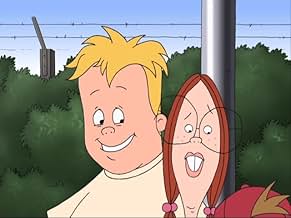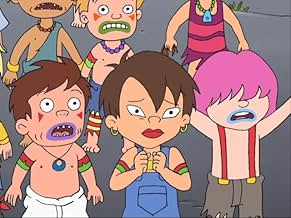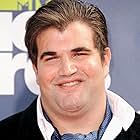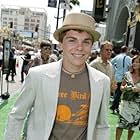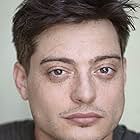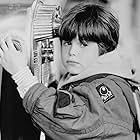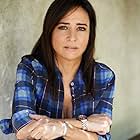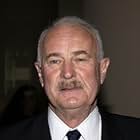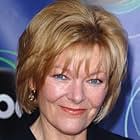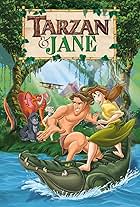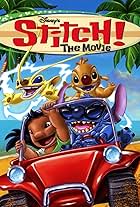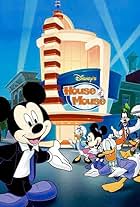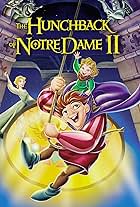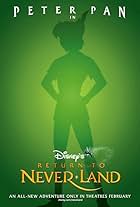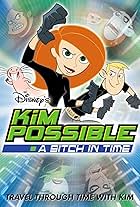TJ and the gang has their shares of memories as kindergarteners when the kindergarteners captures them.TJ and the gang has their shares of memories as kindergarteners when the kindergarteners captures them.TJ and the gang has their shares of memories as kindergarteners when the kindergarteners captures them.
Jason Davis
- Mikey Blumberg
- (voice)
Myles Jeffrey
- T.J. Detweiler
- (voice)
Andrew Lawrence
- Younger T.J.
- (voice)
Ross Malinger
- Older T.J.
- (voice)
Courtland Mead
- Gus Griswald
- (voice)
Pamela Adlon
- Spinelli
- (voice)
- (as Pamela S. Adlon)
Allyce Beasley
- Miss Grotke
- (voice)
April Winchell
- Miss Finster
- (voice)
Klee Bragger
- Digger Sam
- (voice)
Toran Caudell
- King Bob
- (voice)
Rachel Crane
- Ashley Q
- (voice)
Elizabeth Daily
- Digger #1
- (voice)
- (as E.G. Daily)
Storyline
Did you know
- GoofsThe movie shows the whole Recess gang as kindergärtners, including, in "Wild Child", Gus Griswald. This retrons Gus' earlier introduction as a new student at school, by showing that when new kindergärtner Gus wreaks havoc and causing the other Recess gang kindergärtners to rebel against Ms Finster and kindergärtner Randall, Gus is later sent to another, out of sate school and soon forgets his Recess friends, and they in turn, forget Gus, viewing him as a new student when he appears in 1:2, "The New Kid".
- ConnectionsEdited from Recess: The Legend of Big Kid (1997)
Featured review
My earliest versions forgot to mention that I found the Recess features to be okay.
They link to series for kids and such series typically have a lower quality than many features, but they are appreciated in a rather different way. Consider these cartoon features as in the genre of series for kids then I find that they rate as okay.
*
I purchased this because it is an Ashley Johnson. She has completed her films as a girl, and many are not easily available, not uncommon. Lionheart (1990), Annie 2 (1995), Dancer (1998), What Women Want (2000), these tell me that there is interesting stuff there.
Her role here is as the voice of an animated character. This is her as a young woman. I guessed who Gretchen was by glancing at a pic and as soon as Gretchen spoke I recognised her as Gretchen. This is blatantly Ashley, but with something feeling wrong.
Recess, characters such as Mikey and Spinelli stood out as solid. My problem was Gretchen seeming distant and flat, as if her soundtrack was processed wrong. I am used to Ashley J having a very real screen presence, visual and sound, an unusual power that was not singing for me here. Was this me not perceiving this DVD right?
Second hearing, the rhythm felt out, how the individuals blended together. But more of the content was feeling solid. I then assumed that I was experiencing a problem that acclimatisation was likely to calm for me. I found the third viewing to be a whole lot better.
Re-watch it recently, Gretchen actually clicked as okay, just Gus seemed way out.
*
How does this portrayal of junior school compare to reality? I am guessing that Billy Madison 1995 might be closer. Except that this includes a stylised portrayal of a Kindergartner regime with quiet and polite children that reminds me of my education in the UK, 1950's and 60's.
In fiction I find such as Paula Danziger, her Earth To Mathew in particular, as strong reminders of quiet and polite not typically being the good health that I thought it to be at the time. I find this a worthwhile topic.
In this, Kindergarten is age 5 and the next step is grade 1. That surprised me as I had thought that grade 1 USA was age 5, as the UK when grades are mentioned here. No. So Scottish Hogwarts of ages 11 to 17-18 as USA grade 6 to 12, and Harriet The Spy, being grade 6 USA, as age 11 going to 12, the year of Hogwarts entry. Stories often assume that this sort of detail is well known, or not relevant?
Things would never be simple? Phyllis Reynolds Naylor's Alice series of novels, rather excellent, uses year numbers to show Alice's progress through Chicago and Washington USA middle and upper schools. Years 1 to 13, 13 being grade 12. MK&A's Two Of A Kind has the twins sent away to a boarding school for ages 11 to 18. Blyton's very English stories about Malory Towers is for ages 12 to 18 and raises the question of upper and lower fourth, a reminder of Bunter's 'Remove', maybe these relate to streaming in year 4, 14 to 15.
*
The DVD I have has this 58ish minute feature plus three additional eleven-ish minute episodes, which are: The Challenge - The Story Of Whomps - One Stayed Clean
They link to series for kids and such series typically have a lower quality than many features, but they are appreciated in a rather different way. Consider these cartoon features as in the genre of series for kids then I find that they rate as okay.
*
I purchased this because it is an Ashley Johnson. She has completed her films as a girl, and many are not easily available, not uncommon. Lionheart (1990), Annie 2 (1995), Dancer (1998), What Women Want (2000), these tell me that there is interesting stuff there.
Her role here is as the voice of an animated character. This is her as a young woman. I guessed who Gretchen was by glancing at a pic and as soon as Gretchen spoke I recognised her as Gretchen. This is blatantly Ashley, but with something feeling wrong.
Recess, characters such as Mikey and Spinelli stood out as solid. My problem was Gretchen seeming distant and flat, as if her soundtrack was processed wrong. I am used to Ashley J having a very real screen presence, visual and sound, an unusual power that was not singing for me here. Was this me not perceiving this DVD right?
Second hearing, the rhythm felt out, how the individuals blended together. But more of the content was feeling solid. I then assumed that I was experiencing a problem that acclimatisation was likely to calm for me. I found the third viewing to be a whole lot better.
Re-watch it recently, Gretchen actually clicked as okay, just Gus seemed way out.
*
How does this portrayal of junior school compare to reality? I am guessing that Billy Madison 1995 might be closer. Except that this includes a stylised portrayal of a Kindergartner regime with quiet and polite children that reminds me of my education in the UK, 1950's and 60's.
In fiction I find such as Paula Danziger, her Earth To Mathew in particular, as strong reminders of quiet and polite not typically being the good health that I thought it to be at the time. I find this a worthwhile topic.
In this, Kindergarten is age 5 and the next step is grade 1. That surprised me as I had thought that grade 1 USA was age 5, as the UK when grades are mentioned here. No. So Scottish Hogwarts of ages 11 to 17-18 as USA grade 6 to 12, and Harriet The Spy, being grade 6 USA, as age 11 going to 12, the year of Hogwarts entry. Stories often assume that this sort of detail is well known, or not relevant?
Things would never be simple? Phyllis Reynolds Naylor's Alice series of novels, rather excellent, uses year numbers to show Alice's progress through Chicago and Washington USA middle and upper schools. Years 1 to 13, 13 being grade 12. MK&A's Two Of A Kind has the twins sent away to a boarding school for ages 11 to 18. Blyton's very English stories about Malory Towers is for ages 12 to 18 and raises the question of upper and lower fourth, a reminder of Bunter's 'Remove', maybe these relate to streaming in year 4, 14 to 15.
*
The DVD I have has this 58ish minute feature plus three additional eleven-ish minute episodes, which are: The Challenge - The Story Of Whomps - One Stayed Clean
Details
- Runtime1 hour 1 minute
- Color
- Aspect ratio
- 1.33 : 1
Contribute to this page
Suggest an edit or add missing content

